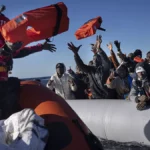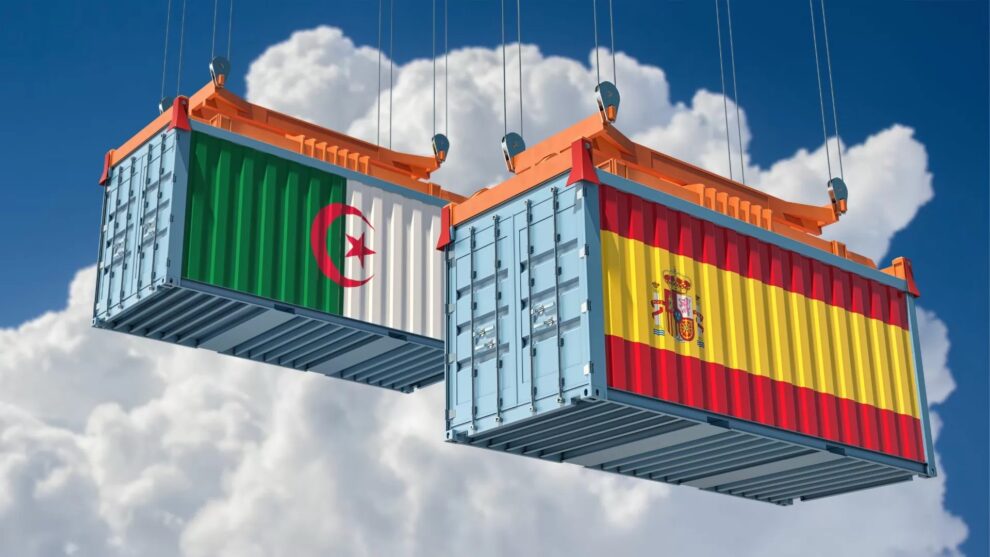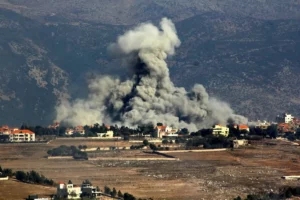Spain’s decision to recognize Morocco’s “autonomy plan” for Western Sahara has caused tensions and a trade war with Algeria. Spain is seeking to strengthen ties with Morocco while maintaining good relations with Algeria, which is a tricky balancing act.
Trade between Spain and Algeria has been seriously jeopardized since June 2022. This has occurred because Algeria suspended a 20-year-long friendship and cooperation treaty with Spain. This suspension came as a response to Spain’s decision to formally recognize Morocco’s “autonomy plan” for Western Sahara.
What is the Backstory of Western Sahara?
Western Sahara is a stretch of desert territory along the Atlantic coast. It borders Morocco, Algeria, and Mauritania. From 1884 to 1976, Spain was the colonial ruler of Western Sahara, which was then known as Spanish Sahara. During the great wave of decolonization in the second half of the 20th century, the Polisario Front—a Sahrawi nationalist liberation movement—waged guerrilla war against Spain.
Following the campaign of pressure that the UN, Morocco, and the Polisario Front launched against Spain in the late 1960s prompted Madrid to consider withdrawing from the region, given that it no longer anticipated a future in the area. Subsequently, in 1974, Spain signaled its withdrawal by announcing plans for a referendum in which the Sahrawi people could determine the future of the territory, whether to be a part of Morocco or Mauritania or to obtain their independence. Morocco and Mauritania welcomed Spain’s decision. However, the UNSG adopted Resolution 3292 suspending the referendum until a formal process for this could be determined.
On October 16, 1975, the International Court of Justice (ICJ) in the Hague found that while there were legal ties of allegiance between the Sultan of Morocco and certain tribes in Western Sahara during the time of Spanish colonization, and there were rights connecting the Mauritanian entity to the territory of Western Sahara, there was no evidence of a territorial sovereignty link between the territory of Western Sahara and either the Kingdom of Morocco or the Mauritanian entity. In response to the ruling, in 1975 King Hassan II of Morocco calledfor a peaceful mass demonstration in the form of a march into Western Sahara. The King sought to reaffirm Morocco’s claim of sovereignty over the territory and called upon the Moroccan people to participate in the march. He emphasized that the march was the only way to regain control of Western Sahara.
Western Sahara is important for Morocco not only for sovereignty reasons but also for economic ones. It is rich in rock phosphate, a valuable fertilizer that secures the world’s food supply. This mineral is Morocco’s third largest export and brought the country $850 million in 2021. As a region along the Atlantic coast, Western Sahara is important for fishing, providing 75% of Morocco’s catches. Clearly, this region is of paramount importance to Rabat.
What Is Going on Now with Spain, Morocco and Algeria?
Therefore, Moroccan-Spanish ties turned glacial when Spain admitted Polisario leader Brahim Ghali in April 2021 for medical treatment without officially telling Rabat. In 2022, Madrid agreed to support Rabat’s autonomy plan for Western Sahara, ending a year-long diplomatic crisis.
Spain’s change in policy has improved ties with Morocco after a year-long diplomatic spat. However, this move has infuriated Algeria, which imposed an economic blockade on Spain in June 2022. This resulted in significant losses estimated at around $1 billion (€930 million) in the following seven months alone. Spanish Secretary of State for Trade Xiana Méndez Bértolo recently announced that, between June and November 2022, Spain’s exports were a mere $189.1 million (€176.2 million) to Algeria. In December 2022, Spanish exports to Algeria amounted to $11.81 million (€10.8 million), a fall of 84%. Spain’s position as an exporter to Algeria fell from second in 2021 to ninth in 2022.
This has hurt Spanish companies and businesses exporting to Algeria, especially in Valencia and Catalonia. These regions account for over 50% of Spain’s exports to Algeria. In terms of sectors, enamelers and ceramic machinery manufacturers are facing significant negative impacts.The economic pain of this blockade has led the Spanish Ministry of Trade to seek the support of the European Commission. It has come up with a financial plan to support Spanish companies suffering from the blockade. EU foreign policy chief Josep Borrell traveled to Algeria in March to resolve this crisis but the visit was unsuccessful.
Algeria Is Still Supplying Gas to Spain
Spain depends on Algeria for gas. Therefore, it is important for Madrid to maintain good relations with Algiers. Algerian President Abdelmadjid Tebboune commented that “among all the Algerian statements, what matters to the Spanish state is the full guarantee of Spain’s supply of Algerian gas and the strict respect of the international contracts.” Algeria has assured Spain that it will continue to supply gas under any circumstances.
Spain gets much of its gas through the Medgaz pipeline from Algeria. According to Spanish reports, Madrid has recently turned to the US for gas. Many analysts speculate that Spain might be moving away from Algerian gas. Hence, Algeria decided not to escalate matters with Spain when it comes to supply of gas. Losing a lucrative export market would not be in Algerian economic interest.
Tensions between Spain and Algeria have occurred in the past but the two countries have always been able to achieve an accommodation. This time, things are different. Spain’s change of policy has touched a raw nerve and only a change in government might lead to the calming of the waters.
Algeria Strengthens Ties with Other Countries
As Spanish exports to Algeria have crashed, other countries such as Portugal and Italy have stepped in. In 2021, Portugal exports to Algeria totaled $241 million. The main products were uncoated paper, heating machinery, and acrylic hydrocarbons. Between February 2022 and February 2023, Portugal’s exports have increased by $384.6 million. The top exports to Algeria in February 2023 were vegetables, wood pulp, paper products, plastics and plastic goods, machinery, mechanical appliances and parts.
Before the rupture in relations, Algeria preferred Spanish products. Sociedad Española Automóviles de Turismo (SEAT), a Spanish car manufacturer was active in Algeria. In 2018, SEAT expanded strategic operations in Algeria. Now, Italian car company FIAT seems to be replacing SEAT. In March 2023, six FIAT carlines were launched in Algeria. In contrast, SEAT’s growth has suffered.
Italy and Algeria have good neighborly agreements. They are now deepening their strategic partnership. In January 2023, Italian Prime Minister Giorgia Meloni visited Algeria to launch her new Mediterranean policy in Algiers. It is well known that Italy wants to become an energy hub between Europe and the southern Mediterranean. The Russia-Ukraine War is causing an energy crisis in Europe, which is looking for alternative sources. This offers a great economic opportunity for both Italy and Algeria.
Both countries also signed agreements relating to aerospace and pharmaceutical sectors. These agreements were not only about economics but also geopolitics. Italy sees Algeria as a vital actor in the Mediterranean region that can underpin regional stability. Algeria’s neighbors are facing turmoil. Libya is going through a civil war. Al Jazeera has called Tunisia a “ticking time bomb.” The unsettled situation in North Africa makes Algeria critically important not only for Italy but also the European Union.
Is Morocco a Springboard for Spain Into Africa?
Spain has a growing interest in the Moroccan market. In 2022, Spanish exports to Morocco amounted to $12.9 billion (€11.748 billion) while Moroccan imports to Spain were $9.4 million (€8.6 million). Morocco lies just across the Strait of Gibraltar to the south of Spain. It is Spain’s closest neighbor in North Africa. Morocco is a natural trading partner where demand for Spanish goods and services is growing. Therefore, it makes sense for Spain to invest in closer relations with its southern neighbor.
Spanish President Pedro Sánchez visited Morocco in February. The two governments reached agreements on migration, tourism, trade and investment. Just as Italy is developing a strategic relationship with Algeria, Spain is betting on Morocco. Spanish companies are looking to expand in North Africa. Morocco could be a good base of operations for Spain. Given the fact that Spain’s relations with Algeria have taken a hit and other European rivals are stepping in, it makes sense for Madrid to cultivate Rabat. A closer relationship with Morocco makes both economic and geopolitical sense for Spain.
Source: Fair Observer

















Add Comment